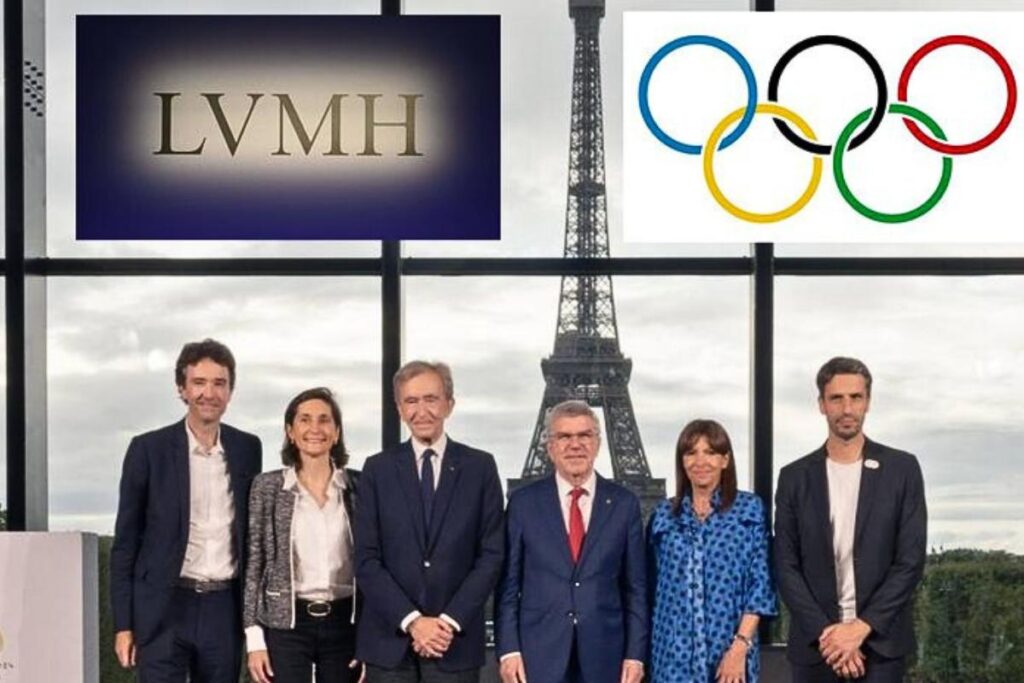The Olympic Games are not just a celebration of athletic mastery but also an avenue for showcasing culture, history, and national pride around the world. For the first time, a luxury brand is sponsoring the 2024 Olympics in Paris—and it’s not just one brand—it’s the empire of LVMH.
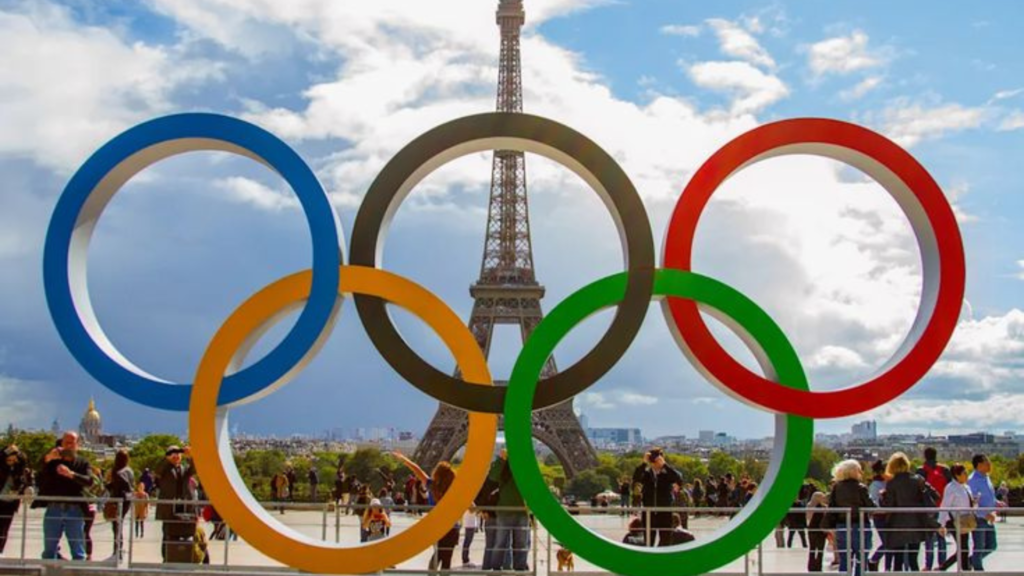
This is more than just a marketing move; it’s a tribute to the spirit of France. The CEO of LVMH, Bernard Arnault, has eloquently described how this sponsorship honors the spirit of France and aligns with French heritage. So before we get into the specifics, a little history on Bernard Arnault’s journey at LVMH first.
Is Bernard Arnault the Third-Richest Man in the World?
Over nearly four decades, the 75-year-old CEO of LVMH, Bernard Arnault, has created a large luxury empire that includes brands like Louis Vuitton, TAG Heuer, and Dom Pérignon. With a net worth of almost $200 billion, he is currently the third richest man in the world, though he temporarily reclaimed the spot in March 2024.
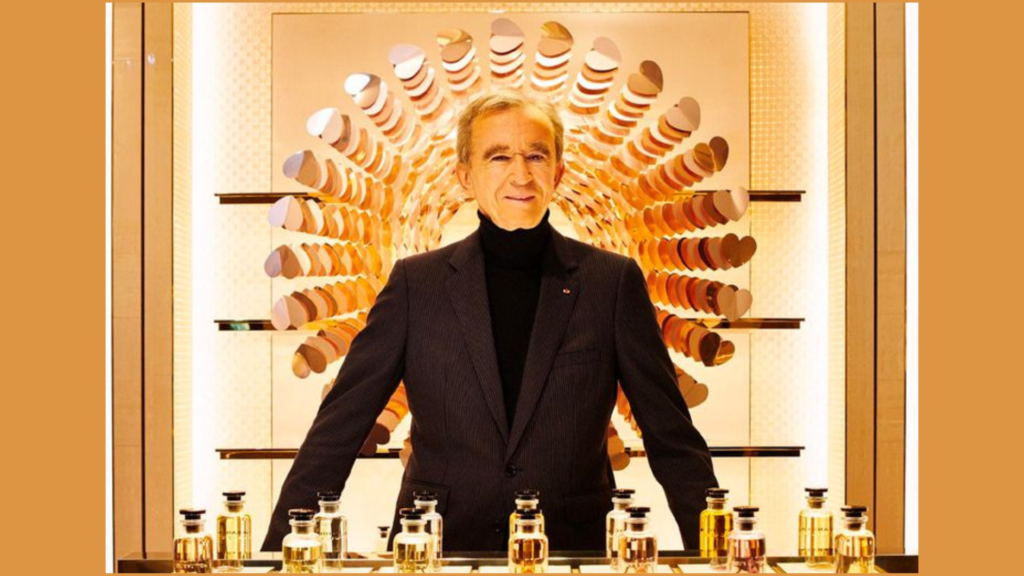
Arnault, Bezos, and Musk have alternated as the wealthiest people on multiple occasions. He’s also brought his five kids into the family company, drawing comparisons to HBO’s Succession.
When Did Bernard Arnault Gain Control of the LVMH Group?
Bernard Arnault started working with LVMH in 1984, and by 1989, he had a sizable amount of power. Initially involved in his family’s construction business, Arnault later saw the potential of luxury goods. He entered the luxury market at the beginning of the 1980s when he acquired the near-bankrupt Boussac Saint-Frères, which owned Christian Dior.
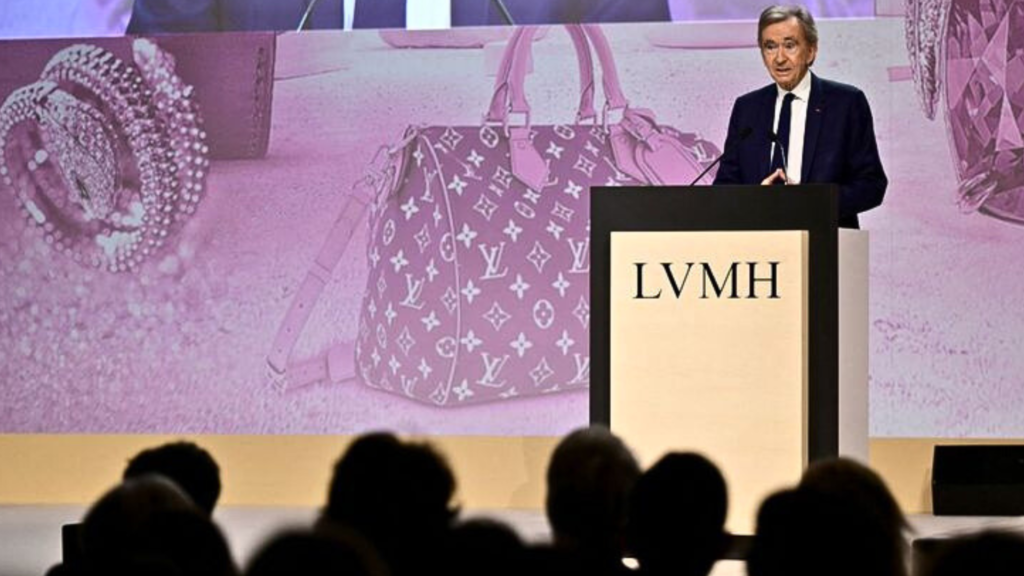
Acknowledging the possibilities of combining luxury brands, Arnault made smart acquisitions of additional businesses until gaining control over LVMH, which was established by the merger of Louis Vuitton and Moët Hennessy.
ALSO READ: Bernard Renault Again Becomes Richest Person in the World
How Did Bernard Arnault Own LVMH?
Arnault’s acquisition of LVMH was a strategic masterclass. After managing Boussac Saint-Frères and Dior, he shifted his attention to LVMH, gaining allies within the company and buying shares quietly to avoid an increase in prices. Initially, he became the largest shareholder after buying a 24% stake.
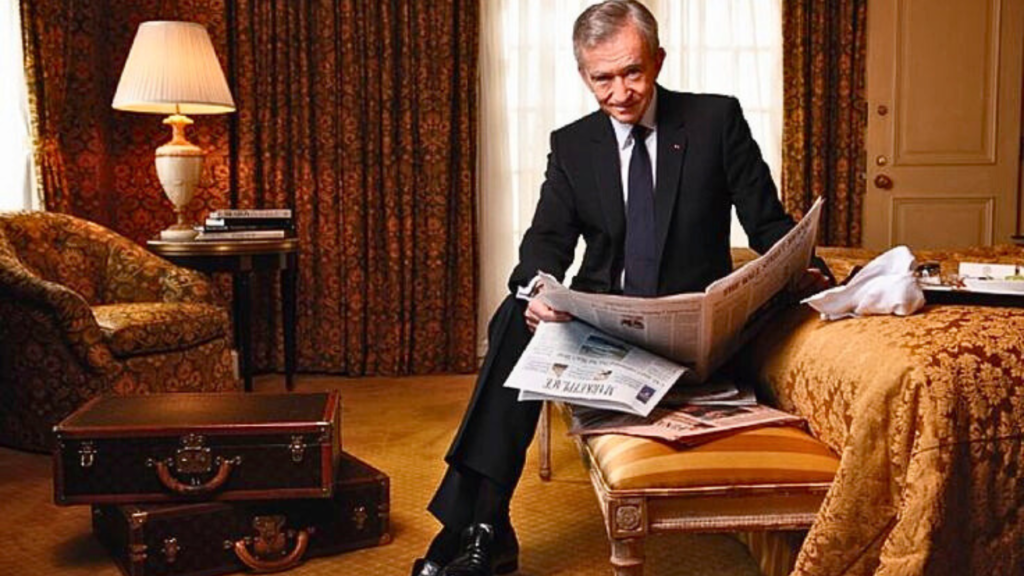
With the help of Louis Vuitton’s chairman, Henry Racamier, he gained a majority position. By 1990, Arnault had established his power, ousting the previous leadership and securing the dominance of French luxury goods worldwide.
Who Is the Sponsor of the Olympics 2024?
The fact that LVMH is sponsoring the 2024 Olympics is historic for the firm and for France, as it brings the Games back to Paris after a century. This sponsorship, in Bernard Arnault’s opinion, is a celebration of French culture and history.
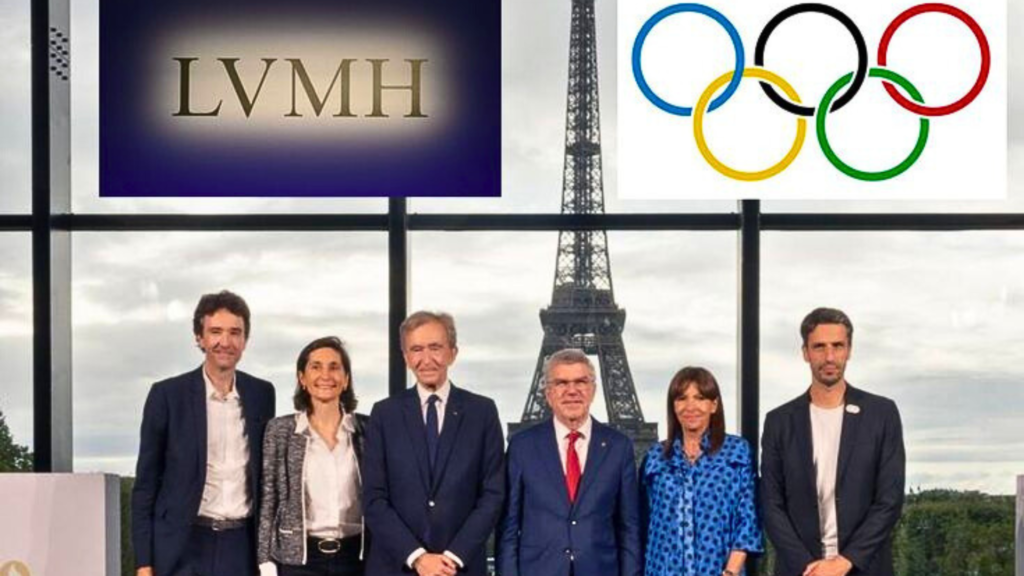
He believes that the Olympics, which bring athletes from all over the world together, are the ideal platform for showcasing France’s excellence and creativity. LVMH personifies the art de vivre of France with its iconic brands. Through this sponsorship, France’s rich cultural legacy is honored on a worldwide scale.
Pre-Olympics Lunch
French President Emmanuel Macron hosted a pre-Olympics lunch with executives from around the world, including Arnault, Airbnb CEO Brian Chesky, and Tesla CEO Elon Musk. Arnault presented his idea to key stakeholders, stressing that LVMH’s sponsorship honors French pride and history.
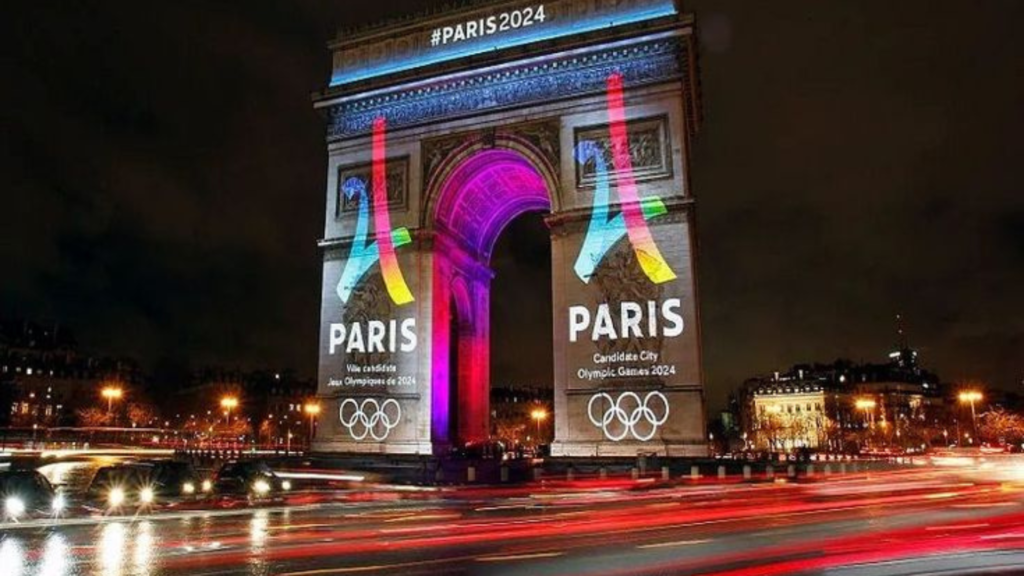
He highlighted plans to promote young athletes, create special-edition products, and collaborate with designers for the French team’s uniforms. Arnault emphasized that this sponsorship is more than just marketing; it aims to combine luxury, history, and sport in a way that honors France’s legacy and benefits the global community.
LVMH’s $160 Million Olympics Sponsorship Deal
LVMH’s sponsorship deal took a year of negotiations. Eventually, it resulted in about $160 million worth of investment from the parent company of brands, including Loewe, Tiffany, TAG Heuer, Celine, Louis Vuitton, and Dom Perignon. The partnership will be on display during the 2024 Paris Olympic Games.
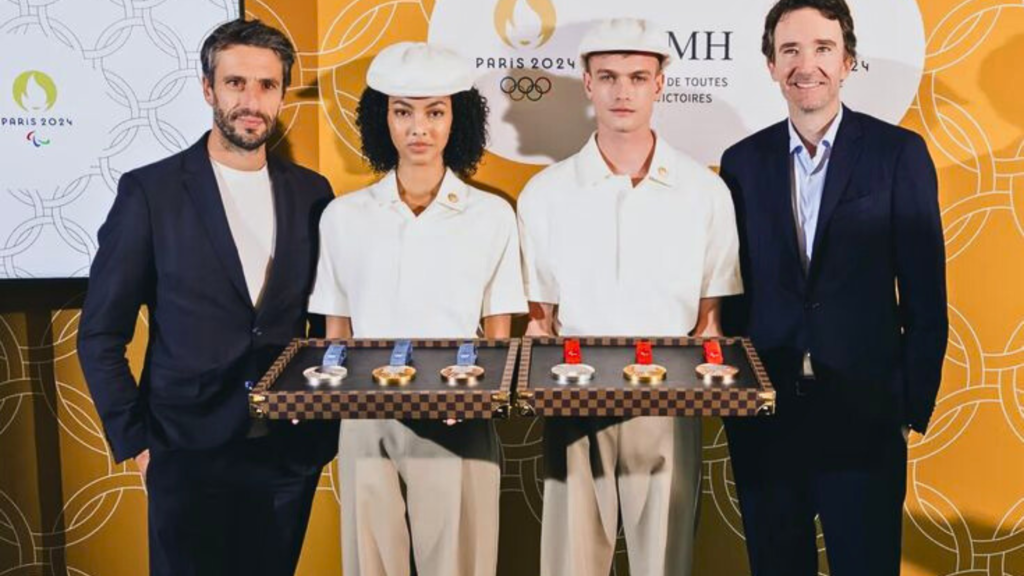
Chaumet, owned by LVMH and with origins in Paris dating back to 1812, is the first jeweler in the Olympic and Paralympic Games history to design medals. The medals will be housed in trunks made by the LVMH brand Louis Vuitton. The company’s Moët Hennessy spirits and wines will be served in the hospitality suites. For the opening ceremony, French teams will wear clothes created by Berluti, a division of LVMH.
The Godfather of the Olympics
While Bernard Arnault’s brands take center stage, his low-key public profile stands out from high-profile figures like Musk and Bezos. Despite his skill at digital marketing, Arnault hates social media and would rather blend in with the crowd at fashion shows.
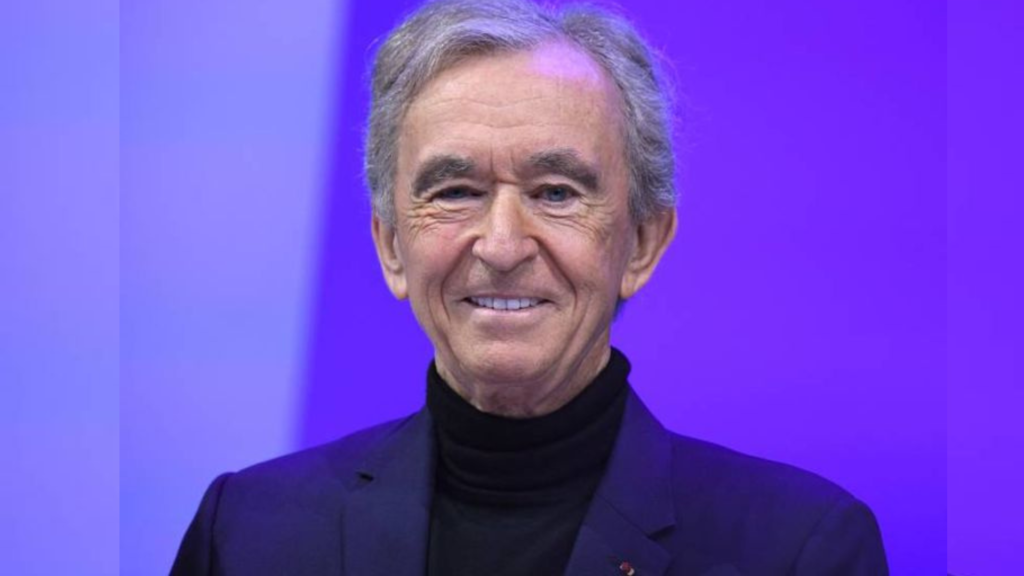
Despite his understated presence, he wields significant influence, and this was evident after President Macron awarded him the Légion d’Honneur. Frank Tapiro, a political image consultant who worked with Arnault, refers to him as the “godfather of the Olympics” and compares him to Louis XIV, demonstrating the extent of his influence and authority.
LVMH Shares Drop Amid Disappointing Second-Quarter Sales
While Arnault enjoyed high praise, his company saw a 4.7% decline in share prices in July 2024 as second-quarter revenue results fell short of analyst projections. Sales came in at 20.98 billion euros as opposed to the projected 21.6 billion euros.
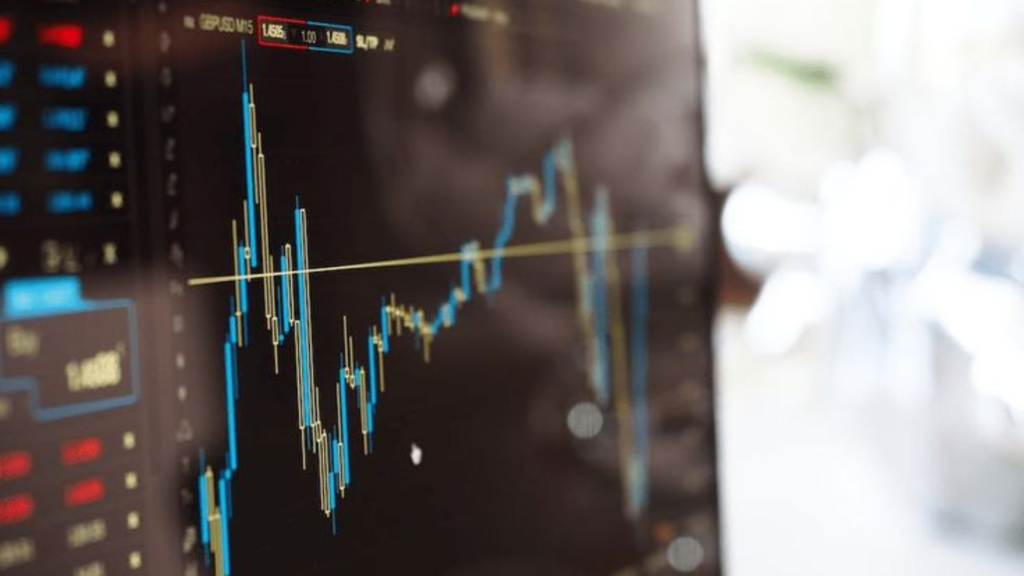
After declining by 6% in the first quarter, the Asian market—aside from Japan—saw a 14% decline in comparison to the prior year, which caused the sales decline. Shares of other luxury companies, including Kering, the owner of Gucci, declined as well.
ALSO READ: Elon Musk Suffers Biggest Loss for a Billionaire in 2024, for Now
Exceptional Growth in Japan Boosts LVMH Sales
A 10% decline in sales throughout Asia, outside Japan, contrasted with 57% year-over-year growth in sales in Japan for the three months ending in June, following a 44% increase in the first half of the year.
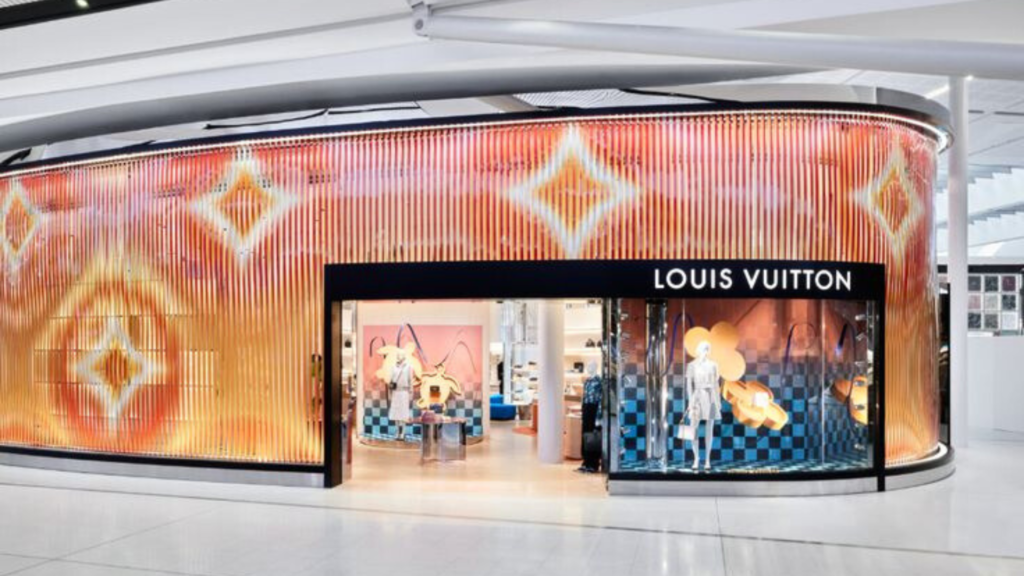
LVMH attributed this significant surge to purchases made by travelers from China. Over this time, Japan became one of the most successful markets for LVMH’s watches and jewelry, fashion and leather products, and perfumes and cosmetics divisions.
LVMH Reports Declines in Wine and Spirits, Watches and Jewelry
LVMH’s wine and spirits division saw a 5% year-over-year revenue loss in the second quarter of 2024, while the watches and jewelry division saw a 4% decline. Europe, the US, and China showed decreased consumer demand in the first half of the year, especially in the wine and spirits category.
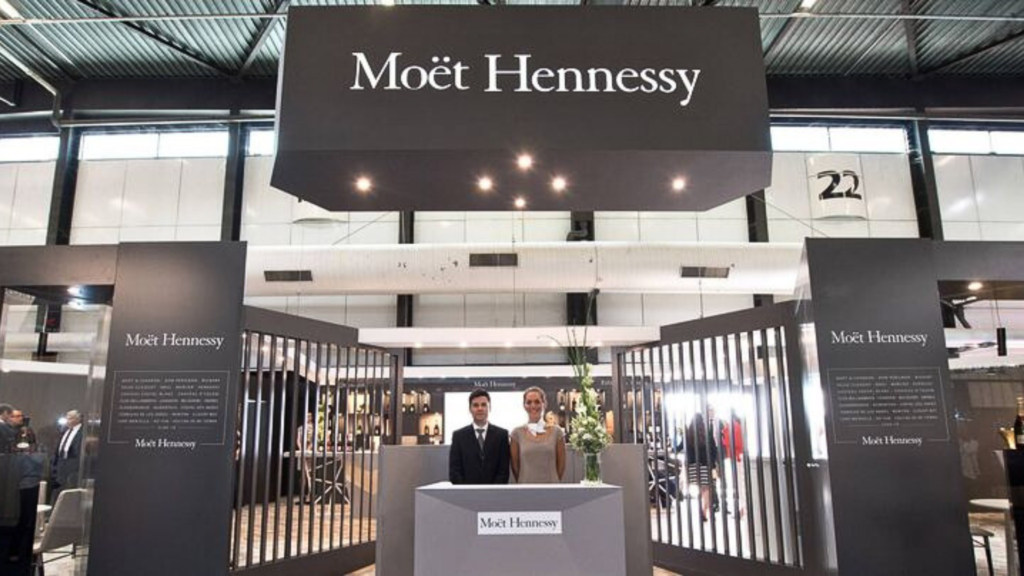
The lasting impacts of the COVID-19 outbreak have led to diminished demand in China for luxury products, including LVMH. Burberry and Hugo Boss are two more names that have reported weak performance.
LVMH’s Growth and Family Legacy
LVMH is now three times bigger than it was in 2009. Last year, it recorded 86.2 billion euros ($93.2 billion) in revenue and 22.8 billion euros ($24.6 billion) in profit from ongoing operations, for a profit margin of more than 26.5%, which is unheard of for companies in industries like retail food, cars, and airlines.
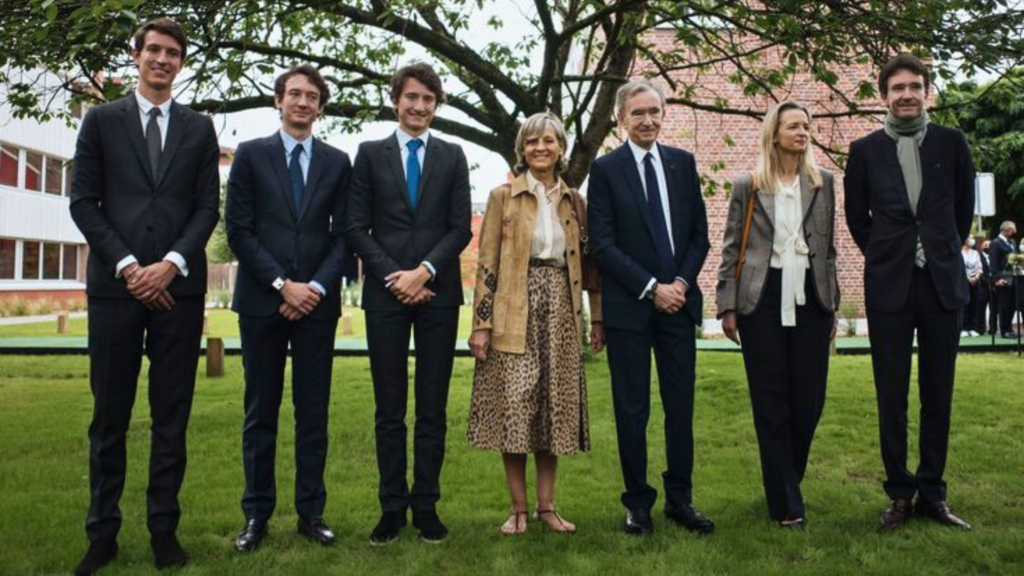
It’s a public company but run by a family. Bernard Arnault’s five children each hold important responsibilities in the company, fueling media speculation over who will succeed him. That being said, his decision to raise the retirement age from 75 to 80 suggests he may not be gone for very long.
You May Also Like:
Where Are China’s Ultra-Rich Investing Their Wealth Amid a Stagnant Economy?
Airbus and Boeing Face Supply Chain Concerns as Orders Dwindle at this Year’s Largest Air Show
Family Offices Offer Equity and Profit Shares to Top Staff to Attract Top Talent
Washington, D.C., Attorney General Files Lawsuit Against StubHub Over Alleged Deceptive Pricing
Stellantis Proposes Broad Buyouts for U.S. Salaried Employees, Potential Layoffs Loom

